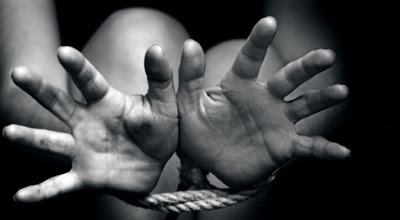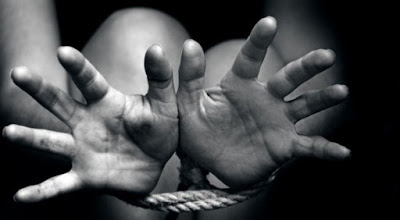The continued trafficking of persons for the purpose of sexual exploitation and work, the use of violence by police and their degrading treatment of detainees and asylum seekers, and violence against women, including domestic violence, are key issues that are recorded in the chapter on Cyprus, in the State Department report on the human rights situation around the world, last year.
According to KYPE, the report on Cyprus follows the established form for years, under the chapter "Cyprus" there is a small introduction and continues with two separate sections, the first entitled "Republic of Cyprus" and the other (with transfer via link) entitled "Turkish Cypriot-Administered Area".
The introduction states that "since 1974 the southern part of Cyprus has been under the control of the Government of the Republic of Cyprus, while the northern part is ruled by Turkish Cypriots who declared themselves" Turkish Republic of Northern Cyprus (TRNC) "in 1983".
It is pointed out that the USA does not recognize the "tdbk", nor any other country except Turkey.
He notes that the political authorities maintain effective control over the security forces.
Among the other problems, except for the above, for the past year, he records the overcrowding in prisons, the lack of separation between pre-trial detainees and convicts, the prolonged detention of asylum seekers and illegal immigrants in prison-like conditions. Also the expulsions of people whose asylum applications were rejected, before they have the opportunity to appeal the decision.
It also notes that the government has investigated and prosecuted cases of corruption by officials who have committed offenses. It also talks about government corruption, incidents of violence against children, incidents of discrimination and violence against members of ethnic minorities and ethnic and national groups, social discrimination against members of the lesbian, gay, bisexual, transgender and transgender community (L).
Among the most important problems he records for the year he spent in the occupied territories, he records "violence against women, restriction of access to certain places of worship and illegal transportation of persons".
The other problems recorded concern: Prison overcrowding and poor prison conditions. Lack of separation of adult prisoners from minors.
Social discrimination against LGBTI people
The report also refers to the absence of an asylum management system or the protection of asylum seekers' rights, vandalism and removal of images from empty places of worship, including damaged, on the verge of collapse, or converted to other uses, corruption and in the `executive and legislatures`, restrictions on freedom of speech and expression and the failure of the` authorities` to introduce and enforce appropriate regulations on work, health and safety.
In Turkey
The chapter on Turkey notes that the political authorities do not always maintain effective control over the security forces and on July 15, army elements carried out a failed coup attempt in which 240 civilians were killed and more than 2.100 were injured.
"The government has claimed that cleric Fethullah Gulen and his supporters plotted a coup and were involved in a plot to overthrow the judiciary and state institutions."
It refers to the attacks carried out by the PKK and their groups against the security forces. "The clashes claimed the lives of 600 members of the security forces, at least 200 civilians and an unknown number of PKK terrorists."
He notes that 300.000 people have been displaced by the conflict, many of whom have been displaced by the end of the year. Notes also the terrorist attacks of the PKK and the Islamic State, with many victims /
Among the most serious human rights problems are those that arose after the coup attempt and the declaration of a three-month state of emergency, which was renewed in October.
It refers to the suspension of many measures to protect the legal process in the courts.
"The government has blamed the Fethullah Gulen movement, which is defined as a terrorist organization, for the coup attempt. Courts have jailed tens of thousands of people accused of supporting coups or terrorist groups, in many cases with little clarity about the charges and evidence against them. Government decrees issued on the basis of the state of emergency restricted the suspects' access to legal aid, allowed the suspects to be detained for more than a month without prosecution, and in some cases froze the assets of available or dismissed civil servants. their families ".
He notes that the government has made available or fired tens of thousands of civil servants and closed thousands of businesses, schools and organizations.
There have been government restrictions on freedom of expression, the press, the internet, and growing media pressure following the failed coup.
"Authorities have arrested at least 140 journalists, most of whom have been charged with links to the Gulen movement or links to the PKK."
The set of problems includes, among others, the judicial investigations against press officials on the basis of allegations of support for terrorist organizations, decrees due to terrorism-related publications, blocking of internet pages, self-censorship, the closure of almost all Kurdish newspapers and restricting the access of foreign journalists and observers to conflict areas.
The situation in Greece
The chapter on Greece notes that with more than 60.000 migrants and refugees stranded in the country at the end of the year, the most significant human rights problems were overcrowding and the poor humanitarian conditions faced by migrants and asylum seekers. , including incidents of gender-based violence.
It refers to the lack of adequate housing, food and drinking water, poor sanitation and inadequate access to services such as health and medical care, legal information and assistance, as well as psychological and social support.
"Police violence against immigrants, asylum seekers and Roma was also a major problem. "Social discrimination and incidents of violence against persons are considered to be foreign and members of the lesbian, gay, bisexual, transgender and transgender (LGBTI) community were also significant."
Other human rights issues reported include restrictions on freedom of the press and religion, domestic violence, trafficking in human beings, incidents of anti-Semitism, restrictions on the freedom of certain ethnic-minority groups, including self-determination. discrimination against Roma and the exploitation of Roma children.
Finally, it states that the government has taken steps to investigate, prosecute and punish abusive employees, either in the security services or elsewhere in the government.
Presenting the report to reporters via teleconference by an "anonymous State Department official" rather than in an open briefing at the State Department by Secretary of State Rex Tillerson, or even the Under Secretary of State for Human Rights, but also politicians.
"The report does not need anyone to talk about it," the anonymous official said when asked about Tillerson's absence.
In a brief introductory note, Mr Tillerson emphasized that "our values are in our best interests when it comes to human rights".
Source: SigmaLive

